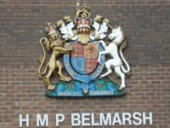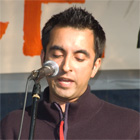VIENNA — The southernmost Austrian state of Carinthia has passed a law effectively banning the construction of mosques, drawing fire from the opposition and Muslims for religious freedom violations.
“I can only recommend to all to have the courage to stand up effectively against this Islamisation that is creeping through Europe and represents a totally different culture,” Governor Joerg Haider was quoted as saying by Reuters. “We are really the pioneers on this,” added Haider, also the leader of the far-right Alliance for the Future of Austria party.
The law requires plans for any building of “extraordinary architecture or size” to be approved by a commission to judge its compatibility with the standard look of towns. This means that mosques would stand little chance of permits.
The new law drew immediate rebuke from the opposition and Muslims alike.
“We are creating a law for something that doesn’t exist,” fumed provincial Social Democratic leader Gaby Schaunig. Schaunig said there was no request to build a mosque in the overwhelmingly Roman Catholic province.
Carinthia is home to 11,000 Muslims out of an estimated 400,000 population, the second-lowest Muslim population in Austria. Muslims, estimated at 400,000 or nearly 4 percent of the population, also denounced the law.
Omar Al-Rawi, the spokesman for Austria’s Islamic community, said it violated principles of equality and religious freedom and put Austria’s reputation on the line.

 A pilot wrongly accused of training the 9/11 hijackers is entitled to claim damages, the Court of Appeal has ruled.
A pilot wrongly accused of training the 9/11 hijackers is entitled to claim damages, the Court of Appeal has ruled.
 The government has been criticised by moderate Muslim groups for banning a controversial Muslim scholar from entering Britain and branding him an extremist.
The government has been criticised by moderate Muslim groups for banning a controversial Muslim scholar from entering Britain and branding him an extremist. Peace and justice campaigners told the police to stop playing “silly buggers” on Monday following revelations that the anti-terrorism squad phone-tapped a senior Muslim MP while visiting a constituent in prison.
Peace and justice campaigners told the police to stop playing “silly buggers” on Monday following revelations that the anti-terrorism squad phone-tapped a senior Muslim MP while visiting a constituent in prison.